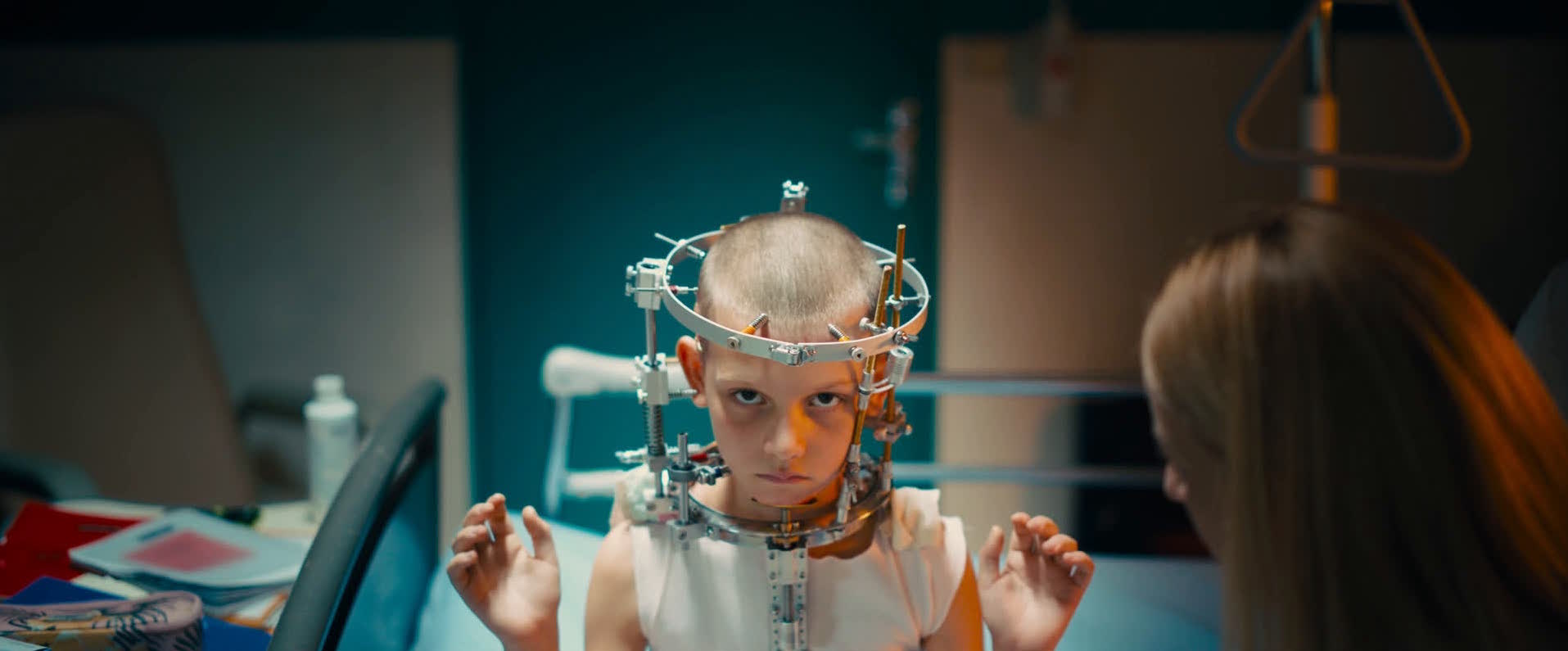When the COVID pandemic first started in 2020, we truly realised the fragility of the human body. A single virus transmitted by a simple cough, sneeze, or brief encounter had the capacity to leave people incapacitated for weeks, with side effects lasting long after, and in the worst case, death. The human body is the fleshy barrier that separates our self from the dangers of the world, while at the same time being a fragile membrane susceptible to all that seeks to threaten it. But what if the malleability of the human body wasn’t so much a threat to our humanity, but something that can edify it?
With her second film after her 2016 debut feature Raw, Julia Ducournau continues to push the limitations of the human body with Titane. It follows erotic motor showgirl Alexia (Agathe Rousselle), who, as a child, was in a horrific car crash resulting in a titanium plate being placed in her skull. Titane disrupts the distinction between man and machine, gender, and genre to create a tender story that at its core is about love and humanity. Alexia’s fixation on cars manifests itself through her sexualised appreciation of cars to the extent that one night, drawn to the headlights of a pimped up hot-rod, she enters the car, has sex with it, and climaxes. Not long after her sexual encounter with the car, Alexia begins leaking motor oil and soon learns that she is pregnant. Blurring the boundaries of man and machine, Ducournau redefines intimacy beyond its binary form, and queers this connection into something greater.
After going on a murder spree, Alexia then resorts to concealing her identity by disguising herself as a boy who went missing many years ago. She turns up to a police station as “Adrien,” with a battered nose, bound breasts, and a buzzcut; an appearance so uncannily similar to the missing boy that his father, Vincent (Vincent Lindon), breaks down in tears at the station upon seemingly being reunited with his long-lost son. Throughout the film, Vincent, among others, question Alexia/Adrien’s identity. However, Vincent affirms to Alexia/Adrien, “whoever you are, you are my son.” His character reveals the inherent fragility of the human body—its mind, its spirit, and its physical form. Vincent’s old age prevents him from performing the feats of strength required of a firefighter, and thus, he resorts to injecting steroids into his hyper-muscular body. But this, too, fails Vincent’s aging body as he begins building an intolerance to the drug, requiring progressively stronger doses to acquire the strength he craves from his youth.
With the final sequence of the film, Alexia’s pregnancy comes to term. As her bulging stomach begins splitting at the sides, revealing metal plates underneath, the birth of something is impending. Vincent assists Alexia as she gives birth and reassures her along the way. The titanium side of her skull splits open on her final push, and Alexia dies after giving birth to the baby. Vincent picks up the small infant, whose spine protrudes out of its back as jagged titanium vertebrae: part car, part human. Something new.
Monstrosity has always sought to represent the disruption of categories, and as Ducournau reveals in Titane, monstrosity isn’t something to be feared, assimilated, or destroyed, but rather, something to be celebrated. It’s the birth of something new—a certain optimistic futurity engrained in this monstrous creation. When we realise the fragility of the human body, it is through this acceptance of monstrosity that we can perceive a future for humanity beyond convention. Through Titane, Ducournau explores a future for humanity beyond the limitations of the human form, if only we dare embrace monstrosity.


